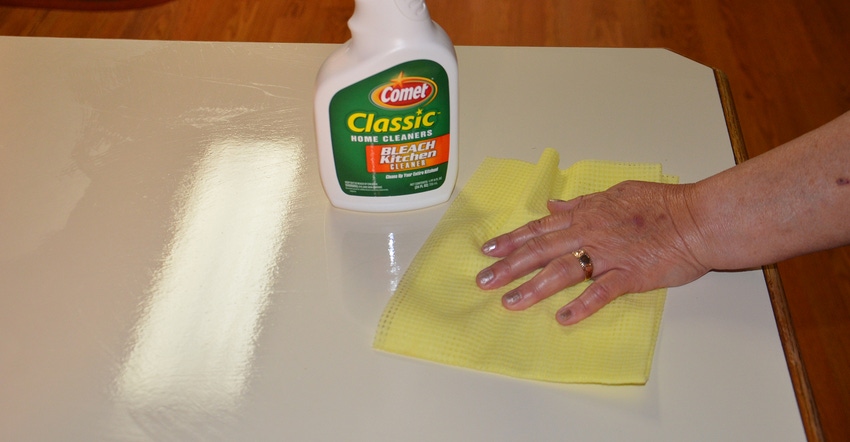May 28, 2020

The COVID-19 pandemic brought out the best in people. There are groups like Western Boone FFA that raised thousands of dollars to help provide locally produced meat and milk products to people needing a helping hand.
It also brought out the worst. There may be a few cases of outright fraud. However, the Office of the Indiana State Chemist is more concerned about those who push the envelope in describing what their products can do. In some cases, they imply things that can’t be documented.
Related: Complete coronavirus coverage
Sarah Caffery, OISC pesticide product registration specialist, says these claims could create a public health hazard by giving consumers a false sense of security.
“Consumers should be wary of claims that offer increased or advanced protections tied to this outbreak,” Caffery says. “If consumers are wondering about the products they should be using to clean and disinfect their spaces, they should review the U.S. Centers for Disease Control and Environmental Protection Agency websites to see what is legal and believed to be effective against the virus.”
Some companies are claiming they can disinfect homes, offices, cars, hospitals and other spaces with products that specifically kill SARS-CoV-2, the virus causing the COVID-19 pandemic. They also say these products or services can protect those spaces from the virus for weeks and months. In some cases, cleaning companies are making false claims about the products they use. In other cases, the manufacturers are exaggerating the effectiveness of their products, OISC officials report.
Understand definitions
Companies must register pesticides, which are defined as products that repel or mitigate a pest, including viruses and bacteria, OISC says.
However, companies providing cleaning services with those disinfectants can’t claim that their product or service provides a protective barrier or coating, or that residual effects of the disinfectant will protect the consumer for an extended period; or that any product or service will control COVID-19, the disease caused by the virus, since products are only effective against the virus and not the disease, OISC says.
Find a list of products, with brand names listed, that are effective against the SARS-CoV-2 virus on the OISC website. These products satisfy EPA criteria against harder-to-kill viruses and those like the SARS-CoV-2 virus. The list is 49 pages long and includes hundreds of products.
It’s not the fact that products don’t work that OISC is warning people about. Instead, it’s some of the claims made about how effective these products can be over time.
CDC defines cleaning, disinfecting and sanitizing as three very specific, very different actions.
According to CDC, cleaning removes dirt and impurities from surfaces or objects. Cleaning works by using soap or detergent and water to physically remove germs from surfaces. This process doesn’t necessarily kill germs. It lowers their numbers and lowers the risk of spreading infection.
Disinfecting kills germs on surfaces or objects by using chemicals. This process doesn’t necessarily clean dirty surfaces or remove germs, but by killing germs on a surface after cleaning, it can further lower the risk of spreading infection.
Sanitizing lowers the number of germs on surfaces or objects to a safe level, based on public health standards or requirements. This process works by either cleaning or disinfecting surfaces to lower the risk of spreading infection.
Keep these definitions in mind as you evaluate claims made by various companies for services or products, experts say.
Comments? Email [email protected].
Read more about:
Covid 19You May Also Like




